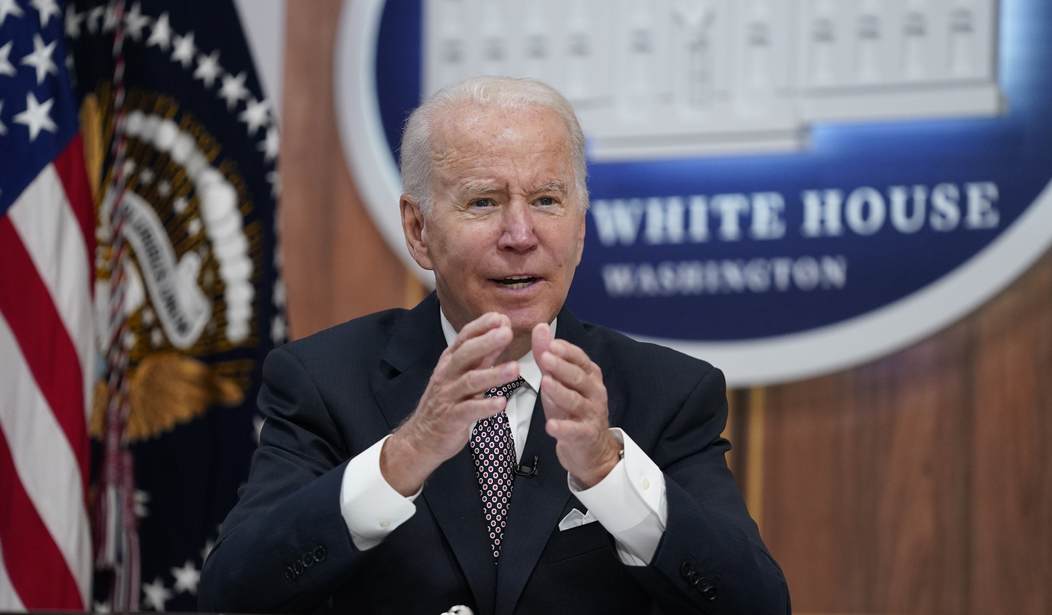Communist China’s Defense Minister, Wei Fenghe, declared last week that his country “will definitely not hesitate to start a war no matter the cost,” adding for good measure that Beijing would “smash to smithereens any ‘Taiwan independence’ plot and resolutely uphold the unification of the motherland.” Remarkably, Mr. Wei didn’t make this statement at a closed meeting of the Chinese politburo in Beijing – but at a conference packed with international journalists and regional defense ministers in Singapore.
Even more astounding was the flaccid response from those in attendance, including President Biden’s own Secretary of Defense Lloyd Austin, who meekly assured Comrade Wei that the White House “do[es] not support Taiwan independence and…stand[s] firmly behind the principle that cross-strait differences must be resolved by peaceful means.”
While Washington’s foreign policy elites remain wedded to a feckless and hopelessly outdated policy of “strategic ambiguity” when it comes to Taiwan, Mr. Wei’s comments have made crystal clear once again that Beijing’s rulers have no interest in parroting vague platitudes or “maintaining the status quo.”
America’s “One China Policy,” which acknowledges Communist China’s claim to Taiwan, was the brainchild of President Richard Nixon and Henry Kissinger some fifty years ago. It came to fruition under President Jimmy Carter, who cut off diplomatic relations with Taipei in 1979 and granted formal recognition to Red China. Not surprisingly, many other nations followed suit – leaving Taiwan’s vibrant democracy and its 23 million citizens largely isolated from the rest of the world today.
Carter’s decision to cement ties with the People’s Republic of China was predicated on Beijing’s commitment to resolve its differences with Taiwan peacefully. But as Mr. Wei’s statements in Singapore demonstrate, Beijing has no qualms about ignoring this foundational assurance upon which the U.S.-China relationship is based. And this is hardly a surprise. From its brutal crackdown in Hong Kong to its militarization of the South China Sea, the Chinese Communist Party rarely – if ever – lives up to its international obligations.
Recommended
The same cadre of experts who hatched America’s failed “One China Policy” have spent decades pushing for cozier economic ties with Beijing as well. They backed permanent, “Most Favored Nation” trade status for China, which President Bill Clinton signed into law in 2000. Clinton’s successor, President George W. Bush, went further, welcoming China to the World Trade Organization a short time later.
In the same way that Washington’s foreign policy shift in 1979 was supposed to result in a kinder, gentler China, Wall Street tycoons assured Americans that accompanying changes to our trade policy would usher in a new era of economic and political liberalization behind the Great Wall. That, of course, has not happened. In fact, these conciliatory steps have had precisely the opposite effect - contributing to a “perfect storm” that has enriched China’s rulers, made them more powerful, more oppressive, and more dangerous to Asia and the United States than at any time in history.
Yet despite the spectacular failure of these policies, State Department bureaucrats in U.S. administrations of both political parties have continued to stampede down this dangerous path undeterred – seemingly more committed to the fantasies of the 1970s than the realities of today.
The world has undergone dramatic changes since the days of Richard Nixon and Jimmy Carter. And so, too, should America’s economic and foreign policy approach to China and Taiwan.
For starters, the United States should lead by example and formally recognize Taiwan for what it clearly is: A democratic and independent nation. Similarly, lawmakers should revoke China’s preferential trade treatment and restore the annual Congressional vote on bilateral U.S.-China trade that existed prior to 2000. The White House should also move quickly to negotiate a Free Trade Agreement with Taiwan – which happens to be home to the world’s largest semiconductor foundry.
Golda Meir, who served as Israel’s fourth prime minister, once warned, “When someone tells you he wants to kill you, believe him.”
American policymakers should heed Ms. Meir’s timeless warning and reverse course before it is too late.
Congressman Tom Tiffany represents Wisconsin’s Seventh District, and Congressman Scott Perry represents Pennsylvania’s Tenth District and is the House Freedom Caucus chairman. They are both sponsors of legislation calling for an end to the “One China Policy” and normalization of US-Taiwan relations.
























Join the conversation as a VIP Member